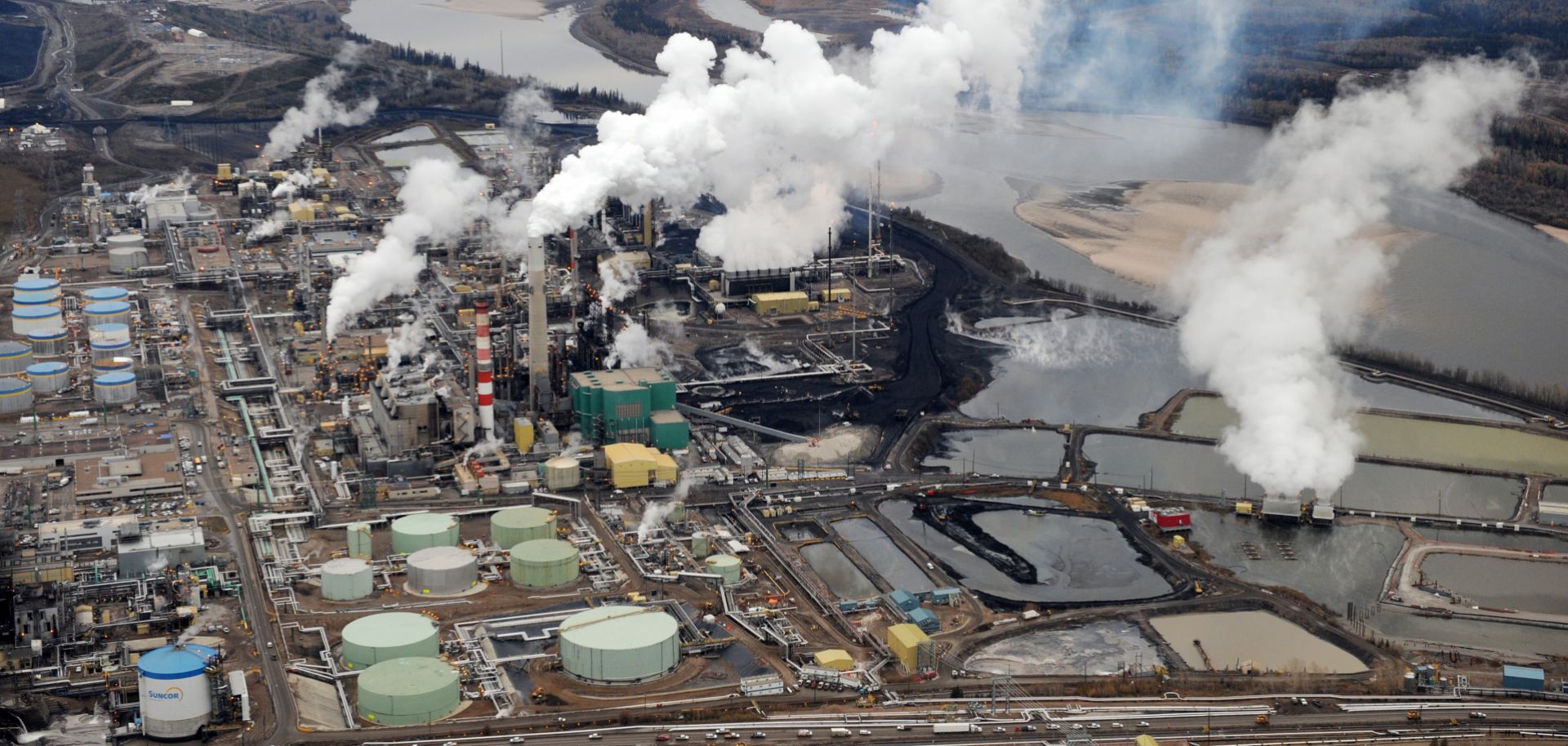ASSESSMENTS
In Canada, a Trade War Emerges
Apr 25, 2018 | 12:00 GMT

The Suncor facility near Fort McMurray, Alberta, extracts bitumen from oil sands in Canada during 2009. Environmentalists oppose the mining of oil sands in the region because of the greenhouse gas emissions.
(MARK RALSTON/AFP/Getty Images)
Highlights
- No matter which party is in power in Ottawa or Edmonton, Canada and Alberta will be compelled to push for more pipeline options to unlock further growth for their energy exports.
- British Columbia's tendency to reject pipeline projects on environmental grounds will put it on a collision course with its neighbor and the federal government.
- While Alberta is threatening to cut off oil and fuel shipments to British Columbia, the courts will rule on the legality of such measures.
Subscribe Now
SubscribeAlready have an account?
